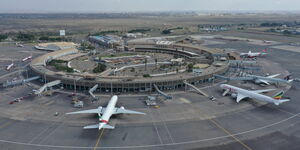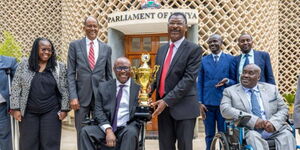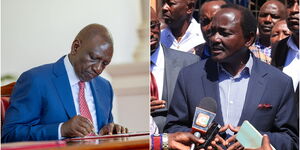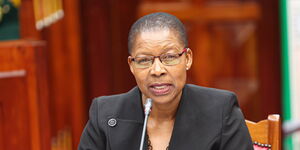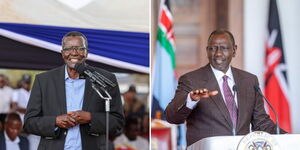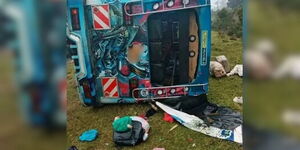The National Metropolitan Services (NMS) has accused Citizen TV of failing to do proper research before airing its expose; NMS Health Accounts.
In a statement dated Tuesday, June 21, and seen by Kenyans.co.ke, NMS pointed out that the feature should have been properly contextualized, adding that a lot of factors had not been put into consideration when the filming was done.
The agency under Gen Mohamed Badi pointed out that the shortage of some essential drugs in the health facilities was attributed to the rating of the facilities under it. Badi noted that the hospitals in question ranked low in the general order, hence they do not enjoy some privileges.
"The Kenya Essential Medical List (KEML) defines all medicines that meet priority healthcare needs, that are of public health relevance, that are efficacious and that are cost effective at all levels of healthcare provisions.
"Given that most of the new NMS facilities are Level 2 and Level 3, specific prescriptions may not be serviced at these lower levels of care," read the NMS statement in part.
In addition, it explained that the low-tier hospitals only operate between 8am and 5pm. However, NMS noted that President Uhuru Kenyatta directed it to change the working hours to enable the facilities function for 24 hours a day, which it noted will be implemented in the next few months.
"The President's directive has called for enhanced commodities requirement, higher number of health workers and enhanced security for staff and equipment particularly within informal settlements. NMS will continue to ensure this efficiency of this initiative and accessibility irrespective of the time of day or night," NMS added.
Notably, NMS reiterated its commitment in ensuring access to essential medical services across all facilities it manages. It added that since its inception, it had been working on reducing the overreliance on the Kenyatta National Hospital.
It pointed out that at its inception, nearly 3.1 million residents of informal settlements relied on KNH and that the high number of walk-in patients undermined the access of specialised medical services in the facility by other Kenyans.
"NMS is working on solving this problem by constructing, equipping and staffing the facilities upon which planning for availability of essential commodities can then now be premised taking account the health needs, patient volumes and prevailing technologies," added NMS.
The report by Citizen TV revealed that most of the 24 hospitals managed by NMS lacked basic supplies, including medicines. Further, patients had to deal with long queues and expensive drugs.
In August 2020, Uhuru directed NMS to construct 24 hospitals in informal settlements in a bid to make healthcare services more accessible. 19 would be constructed at a cost of Ksh70 million each, while the remaining five would cost Ksh300 million.

